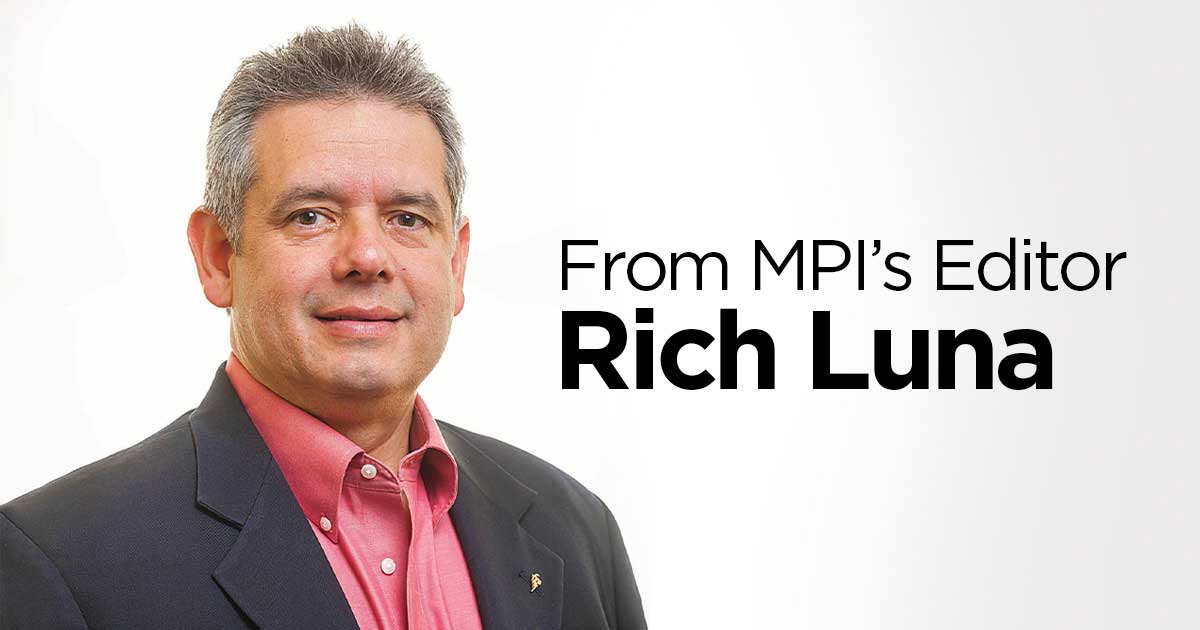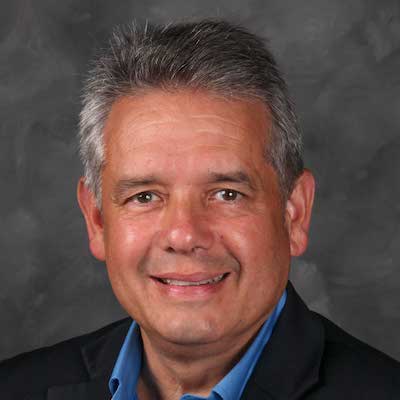Is anyone truly surprised at what has been happening in the U.S. the past few weeks?
I’m not. But I am saddened and heartbroken and damn tired of it. Remember at the beginning of the year when I wrote about how The Meeting Professional would report monthly on diversity and inclusion issues, topics and themes as they impact the meeting industry? I said we’d share success stories, talk about where we can do better and seek out solutions.
“The more things change, the more they stay the same,” I wrote. Well, things haven’t changed enough, and we need to stop making excuses. It is time for real, meaningful and lasting action. Period.
I’m not black, but as a Hispanic who grew up in El Paso, Texas, I can remember racial tensions as far back as when I was about seven years old and cheering on my hometown Texas Western College Miners as they won the national championship in the game that changed college basketball—starting an all-black lineup against Kentucky.
“There have been several instances of racism that I have glossed over. The fact that we’re talking to them—that’s not something that makes people comfortable.”
I remember the harsh lessons about the unfairness of society from one of my first mentors, Nolan Richardson, who is black and was my basketball coach at a high school made up almost entirely of Mexican Americans. One of those lessons was being denied hotel rooms in Abilene, Texas, when we were there for the state playoffs. Some years later, Coach Richardson would take on some of those same demons while leading Arkansas to the national title.
As a journalist covering professional sports, I saw very few people like me, or black or women in the press box—and even fewer as I moved up the ranks in newspaper management, while being pushed forward by mentors who were mostly black or Hispanic. Along the way, I found it difficult to speak out, except in diverse company, for fear of reprisals or, quite frankly, losing my job.
Just this week, I heard stories of ignorance and frustration about this very complex issue from colleagues in the ASAE Diversity Executive Leadership Program (DELP), one of the most dynamic and progressive programs I have been associated with throughout my career.
Through all of that, I still cannot possibly comprehend the outrage and fear of the black community. Does this happen in our industry, meetings and events? You bet.
I heard it in the voices of an open letter to “colleagues and the world” from black destination industry leaders.
I heard it in the voices of some of our industry leaders in a podcast we published today: “Ask Why: Confronting Injustice in the Black Community," sponsored by Louisville Tourism.
Elliott L. Ferguson, president and CEO of Destination DC, shared his perspective as someone who has been in the industry for 30 years.
Along the way, I found it difficult to speak out, except in diverse company, for fear of reprisals or, quite frankly, losing my job.
“The fact that, for the most part, those that come from a diverse background can be disenfranchised by the industry because they don’t see the opportunity to excel,” he said. “I think that what has happened over the last couple of weeks, and I will speak specifically within the black community and within myself, is this has really given me a chance to recognize that though diversity and inclusion is really important and something we should all focus on, we still have an issue with race relations within this country. It’s tied to safety. It’s tied to the fact that as a black man in America, no matter where you are or what your status is, there is a probability that you will be stopped by the police for the color of your skin. Furthermore, as we’ve seen over and over, over the last few decades, you can be killed because of that. It gives me a reason to pause and think about the trauma, perhaps the things I haven’t done or haven’t said as we’re talking about diversity and inclusion but not recognizing that as a person that’s been in this industry for 30 years, there have been several instances of racism that I have glossed over. The fact that we’re talking to them—that’s not something that makes people comfortable.”
Jason Dunn Sr., chair of the National Coalition of Black Meeting Professionals and group vice president of diversity sales and inclusion at the Cincinnati USA CVB, said that many African Americans have been put in an interesting place where “we have to explain what’s happening over and over and over again, and to be honest with each of you, its tiring to describe the desire just to be treated as a human.
“And as I listen, I heard the pain in your voice, and let me just say bro, I apologize for many of us who have not spoken up and protected you as the CEO of DC and other places you’ve been,” Dunn said, responding to Ferguson. “There are many organizations that were created that should insulate you, that could’ve come and should’ve been there to support you, and many of us were in situations where we were scared to speak up. And I think that’s where we lie at now, at the crossroads where black professionals in this industry are not only seen as persons of color or black folks in boardrooms, we’re oftentimes the only ones and also the first ones to hold positions. So, there’s an incredible amount of pressure not to mess up.”
“I don’t see any representation of anyone that looks like me, and so when I’m seeking out mentors, there’s always a disconnect.”
Zoe Moore, event resource broker for LB Alliance and co-chair of MPI’s Diversity and Inclusion Committee, spoke of the “trauma that we bring into our professional space or that we bring into the workplace that we’re not necessarily permitted to talk about—it’s because it’s uncomfortable. Then you look around as a professional and you seek upward mobility and you don’t know about certain roles or opportunities. As you look around, I don’t see any representation of anyone that looks like me, and so when I’m seeking out mentors, there’s always a disconnect.”
Those are just snippets of what was a powerful, honest and raw conversion, and one each and every one of us must listen to if you truly desire change.
We then need to go back and hold ourselves and our employers accountable. At MPI, like many, we’ve done some things right. Like many, we have work to do. But for everyone who responds with calls of support for the black community, it is now time to determine how we can change internal practices and policies that are at the core of the problem.
Let’s not allow the experience of outrage, shock and grief to fade. That includes at my organization, too. We say, “When We Meet, We Change the World,” I suggest we get to it.
Rich Luna
Editor in Chief
rluna@mpiweb.org



